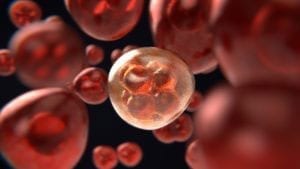Beta Thalassemia Major
What is beta thalassemia major?
Beta thalassemia is a blood disorder characterized by reduced levels of hemoglobin, which is the iron-rich, oxygen-carrying protein found in red blood cells. A main function of red blood cells is carrying oxygen all throughout the body.
There are three types of beta thalassemia, which are distinguished to indicate severity: minor, intermedia, and major.
Beta thalassemia major is also known as Cooley’s anemia and is the most severe form of the disease.
What are the symptoms of beta thalassemia major?
The following symptoms are characteristic of beta thalassemia major:
- Fatigue
- Weakness
- Shortness of breath
- Dizziness
- Headaches
- Yellowing of the skin, mucous membranes and whites of the eyes (jaundice)
- Stunted growth
- Progressively paleness
- Feeding problems
- Diarrhea
- Irritability or fussiness
- Recurrent fevers
- Abnormal enlargement of the liver (hepatomegaly) or of the spleen (splenomegaly)
What causes beta thalassemia major?
Beta thalassemia is a genetic disorder. It is caused by mutations in the hemoglobin beta (HBB) gene. Individuals with beta thalassemia minor have a mutation in one HBB gene, while individuals with the intermedia and major forms have mutations in both. These mutations are inherited in an autosomal recessive manner.
How is beta thalassemia major diagnosed?
Beta thalassemia is diagnosed based on symptoms, patient history, thorough clinical evaluations, and various specialized tests.
Exams include:
- Blood tests
- Molecular genetic testing
With beta thalassemia major, initial symptoms often become apparent during the first two years of life and can include failure to thrive, a swollen abdomen, and symptoms of anemia.
What are the available treatments for beta thalassemia major?
Thiotepa is an FDA-approved treatment indicated to treat beta thalassemia.
Individuals with beta thalassemia major require regular blood transfusions, as frequently as every 2-4 weeks in severe cases.
Where can I find out more about beta thalassemia major?
Beta Thalassemia Major Articles




U.K. Health Authorities Grant Approval for a New Medicine using CRISPR Gene Editing to Treat Beta thalassemia and Sickle Cell

A Preview of Potentially Historic FDA Approvals for 2023


Beta Thalassemia Major: This Couple Had a Baby to Save Their Son





